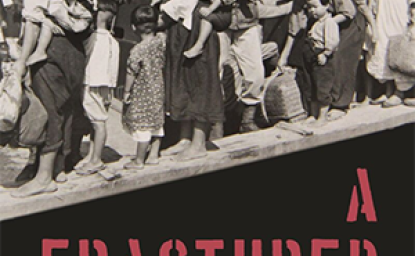#118 De Echeverria a de la Madrid: Las Clases Altas y el Estado Mexicano en la Batalla por la Hegemonia


By Sergio Zermeño
Abstract
In the last fifteen years, the stability of the Mexican political system has been threatened by the following three dangers: (1) The middle classes in their struggle against state authoritarianism (during the 1960s, and specifically in 1968); (2) The upper classes in response to the "populist" excesses of the regime of Luis Echeverria (the crisis of confidence of 1976); and (3) The discord in the heart of the state political elite which faced, on the one hand, (a) the traditional Mexican political class which bases its power upon the broad popular masses put into motion during the Revolution of 1910-17 and during the 1930s (particularly under Cardenas, with the redistribution of land and the nationalization of petroleum). Thus this political class or "revolutionary family" has its bases at the same time in nationalism and in the profound indigenous, peasant, patrimonial heritage (or "pyramidal" heritage, as Octavio Paz would say) which constitutes the basic principle of the powerful State. Mexico is a country in which, in addition, the upper classes have been repeatedly debilitated by the plebeian violence of the masses, and by the enormous supremacy which has historically been conferred on the state actor by virtue of having conducted sustained internal and external war between 1810 and 1930. (b) Upon this traditional Mexican political class (whose essential expression has been the Partido Revolucionario Institucional (PRI) has been superimposed a new generation of politicians--a technocratic bureaucracy, it has been said-- as the result of the demands of the management of a society in an accelerated process of modernization, "petrolization," industrialization, urbanization, and demographic explosion (Mexico City has 16 million inhabitants and will have around 30 million in the year 2000). How can we profit by petroleum? How can we provide food, water, and housing to a population which today stands at 70 million and will double in the next twenty or thirty years?
The discords at the core of the political elite are, then, expressions of a society which is disarticulated, torn between its mass popular heritage (which projects itself stubbornly toward the future as a result of the growing urban poverty), and its own modern, democratic, classist expression, which is also undergoing accelerated reinforcement. Thus, the attacks on the continuity of the Mexican political system have come, in the last fifteen years, from those sectors which are themselves integrated into the development process, economically and culturally speaking: the middle sectors and the fundamental classes of the society (especially from the bourgeoisie). The hypothesis of this work is that these attacks tend to weaken the bases of the strong Mexican State and its political continuity; but it also maintains that the only actor capable of managing and holding together the profound social disarticulation is the state actor. Consequently, it is necessary to think very carefully about the forms of social and political change in which even the simple demand for democratization can be less than innocent.
The paper analyzes two dangers noted above: the relation between the bourgeoisie and the State in the battle for hegemony, and the recent divisions in the center of the so-called Mexican political elite.

Latin America Program
The Wilson Center’s prestigious Latin America Program provides non-partisan expertise to a broad community of decision makers in the United States and Latin America on critical policy issues facing the Hemisphere. The Program provides insightful and actionable research for policymakers, private sector leaders, journalists, and public intellectuals in the United States and Latin America. To bridge the gap between scholarship and policy action, it fosters new inquiry, sponsors high-level public and private meetings among multiple stakeholders, and explores policy options to improve outcomes for citizens throughout the Americas. Drawing on the Wilson Center’s strength as the nation’s key non-partisan policy forum, the Program serves as a trusted source of analysis and a vital point of contact between the worlds of scholarship and action. Read more


Mexico Institute
The Mexico Institute seeks to improve understanding, communication, and cooperation between Mexico and the United States by promoting original research, encouraging public discussion, and proposing policy options for enhancing the bilateral relationship. A binational Advisory Board, chaired by Luis Téllez and Earl Anthony Wayne, oversees the work of the Mexico Institute. Read more




